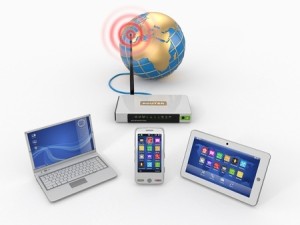 A few decades ago, not many people had more than one PC. Today, how many devices in your home connect to the internet? And what speed is your internet connection?
A few decades ago, not many people had more than one PC. Today, how many devices in your home connect to the internet? And what speed is your internet connection?
The growth of the internet has been extreme. And that’s an understatement. A few decades ago, the thought of running out of IP addresses was only a theoretical concern. Today, it’s very real and in need of solutions. Check out these numbers concerning internet usage:
-
40% of the world population has an internet connection today.
-
1% of the world population had an internet connection in 1995.
-
There are an estimated 3.4 billion internet users.
-
48% of those come from Asia.
-
22% from North and South America.
-
China alone has more users than the United States, Japan and India combined.
There simply weren’t enough IP addresses to support this exponential growth. Network Address Translation (NAT) to the rescue! This temporary technological hero keeps the internet up and running for the billions demanding it while the future of IP addresses is in the works: IPv6 (uses 128 bit addresses instead of 32 like IPv4).
NAT connects your private world to the public network. For all of the devices on your network, you need a single public IP to access the internet. Within your network, your router assigns private IP addresses from a designated range. The same functionality works for business networks as well.
Think of it like an office receptionist, a great example from Jeff Tyson. You have given a client your main office number, the only one that they know, and when they call the receptionist, you've asked that this specific client be forwarded to you. Any other calls are not sent to your extension as you've only requested this important client be connected. When the client calls, the receptionist checks a table for your extension and forwards the call to you.
Two benefits of NAT are security and network administration. We can explain it with the receptionist example again. Just like the receptionist doesn't send you calls from sales reps, your router won't send your PC traffic where you haven't initiated the request. And when you get a new office extension, clients can still contact you because the receptionist is given the updated number. If you update FTP or web servers, you won't bring down your website because you update the information with the router instead of updating each link on each page.
NAT may not provide a stable, long-term solution, but its conservation of IP addresses has sustained the network and internet access we currently demand. It also provides security, which is an incredibly important benefit as we continue to see increasing cyber security threats.








